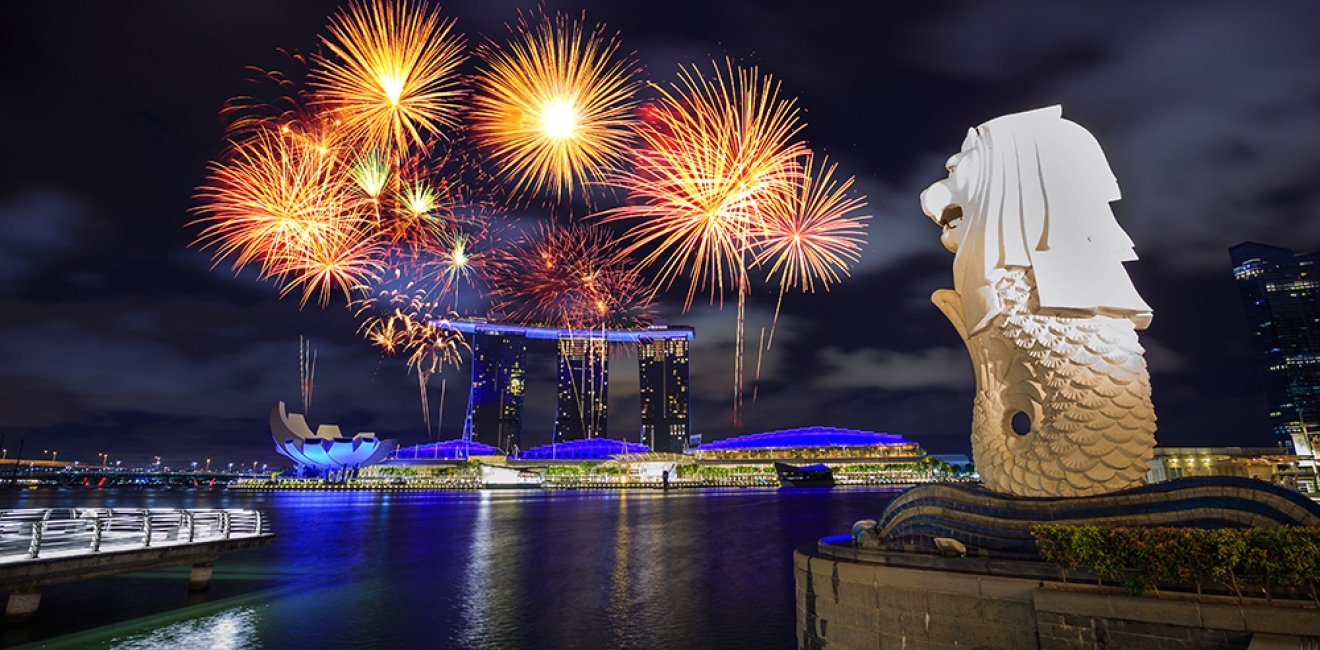
A blog of the Indo-Pacific Program
Nearly one year ago, the Asia Program launched Dispatches, a blog that gathers analysis, commentary, and news on issues affecting the Asia-Pacific. In our first post, Asia Program Director Abraham Denmark predicted that 2018 would be “highly consequential,” and that “the distribution of the region’s economic, political, and military power is evolving rapidly, which will have profound implications for regional stability and for American interests.”
The coverage throughout 2018 demonstrates those shifts in power and evolving relationships, most notably between the United States and North Korea. The year started with the potential for a U.S. attack and a second Korean War. However within a few months, North and South Korea marched under a unified banner at the 2018 Winter Olympics and plans were underway for both an Inter-Korean summit and a meeting between Kim Jong Un and Donald Trump.
The leaders of the United States and North Korea met in Singapore on June 12. In a joint statement, the DPRK agreed to “work toward complete denuclearization of the Korean Peninsula.” However only a month later, it seemed denuclearization talks had begun to stall.
While talks between Washington and Pyongyang slowed, South Koreans continued to push ahead with reconciliation. At a Wilson Center event in November, South Korean Unification Minister Cho Myoung-Gyon spoke of the possibilities for inter-Korean engagement, but cautioned they could only begin after “progress in denuclearization.”
The last year also saw a shift in the balance of trade power when 11 countries signed the CPTPP, a successor to the TPP that excludes the United States. The effort to continue the trade agreement was led by Japan, who also signed an economic partnership agreement with the EU, as the country continues to push for free and fair trade. They also have looked for areas of economic cooperation with China and continued to invest in Latin America.
In September, Prime Minister Shinzo Abe was re-elected within Japan’s LDP party, which will likely enable him to become Japan’s longest serving prime minister. This year saw some rocky moments in Abe’s relationship with President Trump, but his administration continues to invest in their military capabilities and working to “diversify Japan’s foreign policy relationships.”
India also continued their advancement as a rising power in 2018 under the leadership of Prime Minister Narendra Modi. Modi’s “Act East” policy saw more strategic involvement with Southeast Asia this year, which could lead the way to greater involvement in the region as part of the “Quad” of Japan, India, Australia, and the United States.
Meanwhile, a new leader for Pakistan was elected in July. Prime Minister Imran Khan is a polarizing figure, and his administration inherited “a series of urgent economic challenges” and a deteriorating relationship with Washington. However as the year comes to a close, news broke that Trump had sent a letter to Khan “asking Islamabad to help Washington launch a peace process to end the war in Afghanistan.” This year marked the 17th anniversary of the start of the conflict in Afghanistan, and there is growing support for a peace process that would involve bringing the Taliban to the negotiating table.
Throughout the evolutions and shifting power dynamics around the world in 2018, the team at the Asia Program has continued to provide insights and opinions on current events as well as offering vital historical context. We look forward to continuing that work in 2019.
Do you want to make sure you’re up to date on all of the news from the Asia Program? Sign up for our Dispatches newsletter, and follow us on Twitter and Facebook.
Image: BaLL LunLA/Shutterstock.com.
The views expressed are the author's alone, and do not represent the views of the U.S. Government or the Wilson Center. Copyright 2018, Asia Program. All rights reserved.
Author


Indo-Pacific Program
The Indo-Pacific Program promotes policy debate and intellectual discussions on US interests in the Asia-Pacific as well as political, economic, security, and social issues relating to the world’s most populous and economically dynamic region. Read more


Hyundai Motor-Korea Foundation Center for Korean History and Public Policy
The Center for Korean History and Public Policy was established in 2015 with the generous support of the Hyundai Motor Company and the Korea Foundation to provide a coherent, long-term platform for improving historical understanding of Korea and informing the public policy debate on the Korean peninsula in the United States and beyond. Read more





